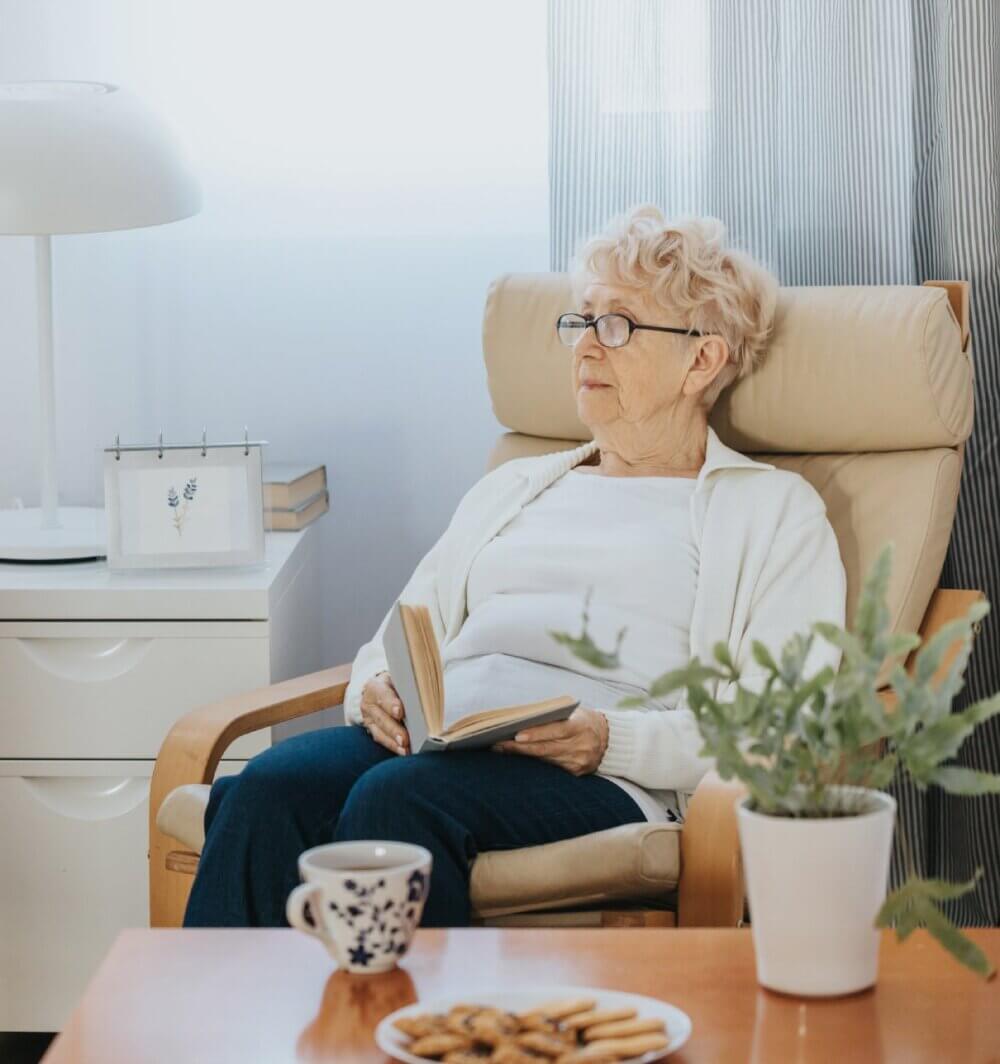Hot Weather Safety for the Elderly:
Staying Safe During Extreme Heat
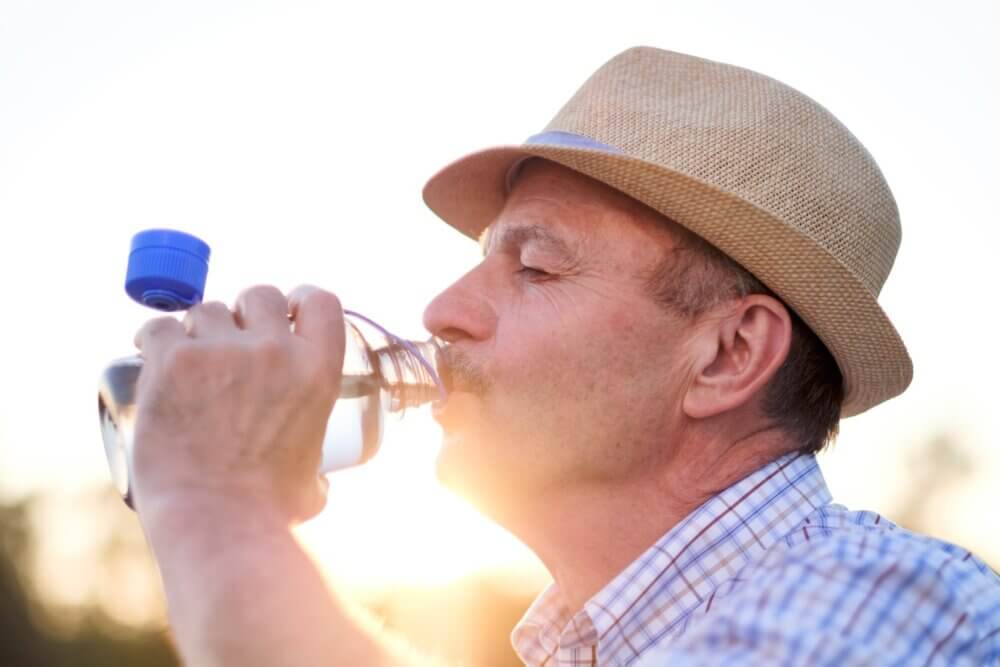
Extreme heat can pose significant risks, especially for the elderly. During hot weather or a heatwave, it is crucial to take proactive measures to ensure the safety and wellbeing of our elderly.
Understanding the Impact of Hot Weather on the Elderly
Hot weather, particularly during a heatwave, can profoundly impact the health and wellbeing of older individuals. The bodies of older people may struggle to regulate temperature efficiently, making them more susceptible to heat-related illnesses.
It is crucial to prioritise their safety by implementing appropriate measures during periods of extreme heat.
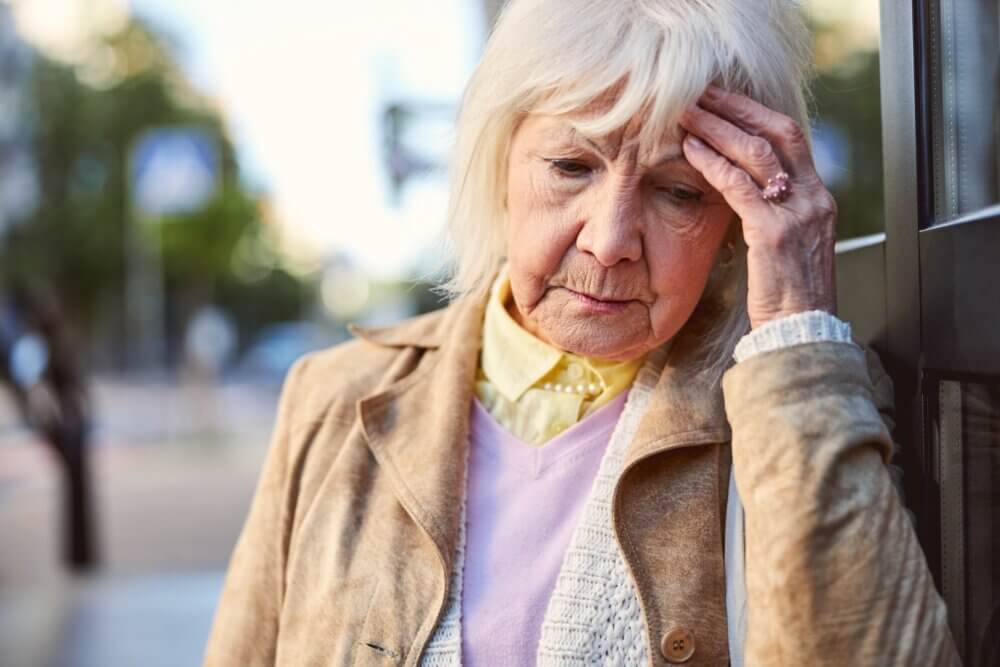
Recognising Signs & Risks
The body’s ability to regulate temperature diminishes with age, making our elderly more vulnerable to heat-related illnesses. It is essential to be aware of these risks and take proactive steps to mitigate them.
Heat-Related Illnesses and the Significance of Body Temperature
Heat-related illnesses, such as heat exhaustion and heat stroke, require prompt attention. Recognising the symptoms, checking body temperature, and taking appropriate action are crucial steps in safeguarding the health of older individuals. Heat exhaustion and other heat-related illnesses can escalate rapidly if not addressed promptly.
Heatstroke: A Severe Condition to Be Aware of
Heatstroke is a severe heat-related illness that requires immediate medical attention. Older individuals are at higher risk, especially if they live in homes without proper cooling systems. Recognising the signs of heatstroke, such as confusion, agitation, fainting, high body temperature, and dry, flushed skin, is vital for timely intervention.
Avoiding Hot Cars: A Life-Saving Precaution
Leaving anyone, including the elderly, in a parked car during hot weather is dangerous and potentially life-threatening. Temperatures inside a vehicle can rise rapidly and reach lethal levels. Never leave an older person unattended in a hot car, even temporarily.
Climate Change and Its Impact on Hot Weather Hazards
Climate change contributes to hotter temperatures and more frequent heatwaves. It is essential to acknowledge the impact of climate change and take measures to adapt and protect the vulnerable, especially the elderly, during extreme heat events.
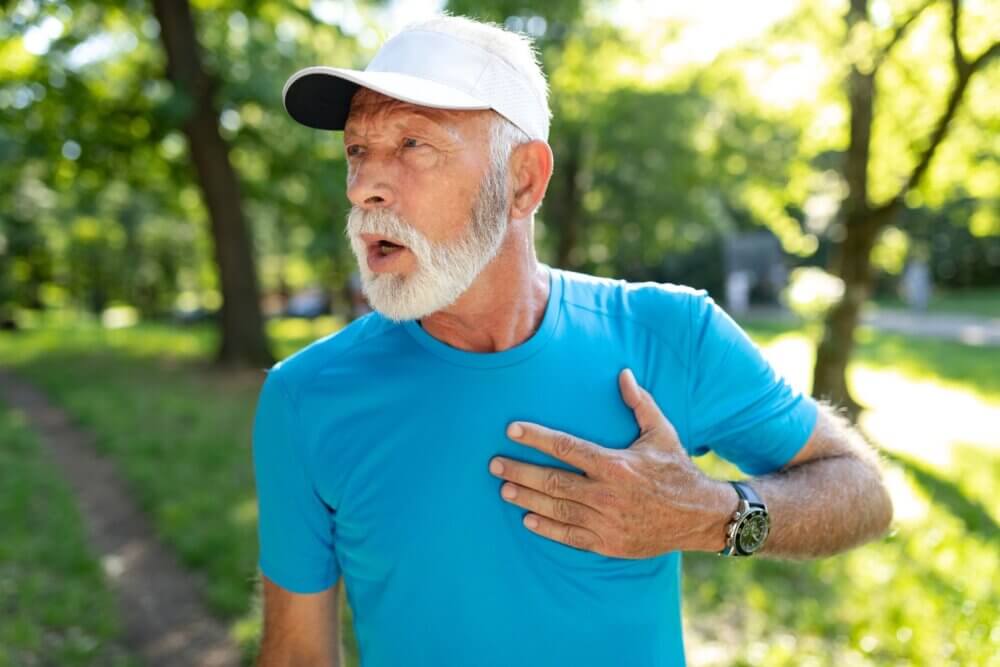
Top Tips for Keeping Cool in Hot Weather
Here are some effective strategies to help seniors stay cool during the summer months:
- Drink Plenty of Fluids: Stay hydrated by drinking plenty of water and avoiding hot drinks or alcohol.
- Use Cold Water Methods: Take a cool shower. Use damp towels or a wet sheet, or place feet in a basin of cool water to lower body temperature.
- Stay Indoors During Hottest Hours: Limit outdoor activities during the hottest parts of the day and seek shade when venturing outside. If you do want to be outside, chill out under a tree. It combines the benefits of staying low to the ground and being in the shade. tThe water released by trees into the air will also help, as it will absorb heat as the temperature rises. When you are indoors, stay on the ground floor as hot air rises. The upper floors of a home can be warmer than the ground floor.
- Wear Light-Coloured Clothing: Opt for light-coloured, loose-fitting clothing made from breathable fabrics to help stay cool.
- Create a Cool Home Environment: Keep windows covered during the day and open windows at night. Use fans. (Aim your fan out of the window. You’ll be blowing hot air out of the room and replacing it with cool air from outside. Note that this tip only works when the air outside is colder than inside your house. Or to give a regular fan a chilly boost put some ice in front of it, and it will help cool down the room quicker.) Use air conditioning, and avoid using heat-generating appliances.
- Utilise Cooling Accessories: Use a spray bottle with water. Place a wet towel around the pulse points – your neck or wrists to feel cooler. You can even fill your hot water bottle with cold water and store it in the fridge to use in bed at night. Speaking of using your fridge, you can put your sheets in a plastic bag and put them in a freezer for a few minutes – it’s a temporary hack – but it’s heat relief.
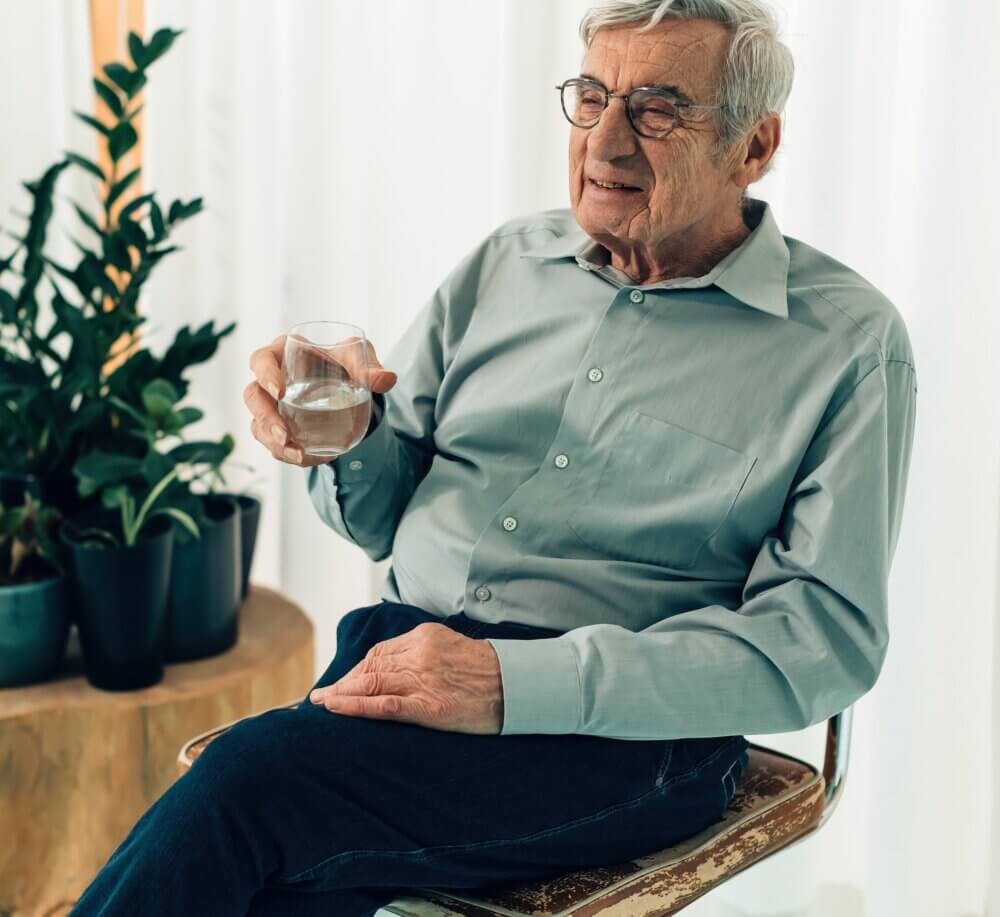
Strategies to Maintain Hydration and Stay Safe
Staying hydrated is crucial for the elderly during hot weather. Here are some key tips:
- Drink lots of water: Encourage older individuals to drink water throughout humid days to maintain hydration.
- Avoid Excessively Cold Drinks & Caffeine: Opt for cool or room temperature drinks instead of icy beverages to prevent shocking the system. Caffeine can make you feel hot and jittery in the heat. Switching to a healthy smoothie on a hot day. Is a brilliant alternative.
- Eat Hydrating Foods: Consume fruits and vegetables with high water content, such as watermelon and cucumbers.
- Monitor Urine Colour: Check urine colour as a simple indicator of hydration levels. Clear or light-coloured urine is a good sign.
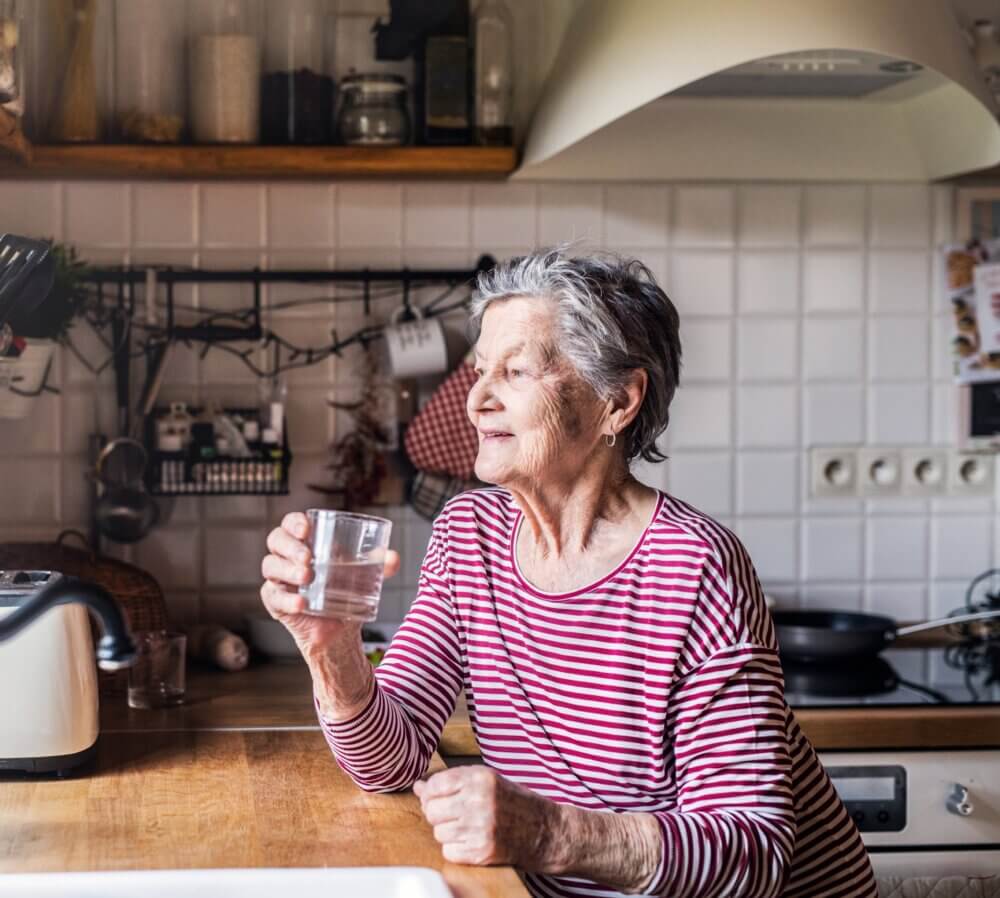
Dress Smart: Choose the right clothing for warm weather.
Proper clothing choices can help older adults stay comfortable in hot weather.
- Wear Lightweight and Breathable Fabrics: Choose natural fabrics like cotton or linen that allow air circulation and aid in sweat evaporation. A T-shirt is a good choice.
- Opt for Light Colours: Avoid dark colours and go for whites and beiges which will help reflect the sun’s rays. Light-coloured clothing reflects sunlight and helps keep the body cool.
- Protect from the Sun: Wear a wide-brimmed hat and sunglasses to shield from direct sunlight.

Creating a Cool Home Environment
Ensuring a cool home environment is crucial for the wellbeing of the elderly. Especially during hours of sleep.
- Utilise Air Conditioning: Instal and use air conditioning systems or fans to maintain a comfortable temperature indoors.
- Keep Shades or Curtains Closed: Prevent direct sunlight from entering the house by keeping blinds or curtains closed during the hottest parts of the day.
- Ventilate During Cooler Hours: Open windows during cooler hours, such as early morning or late evening, to allow fresh air circulation.
High temperatures can pose significant risks to the health and safety of the elderly. By implementing the strategies outlined in this article, such as staying hydrated, staying cool, recognising heat-related illnesses, and creating a comfortable home environment, older individuals can better protect themselves during periods of extreme heat.
